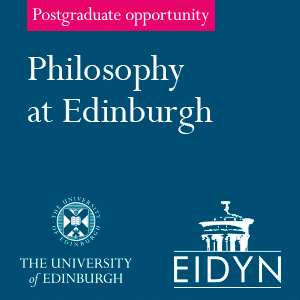Mini-Heap
Mini-Heap: recently added philosophy-related reads…

- Bridging rancorous political divides: what lessons about how to do this can be gleaned from teaching a moral problems course? — quite a few, says Evan Mandery (John Jay)
- One ethical concern with the treatment: it aims to benefit patients by restoring their consciousness, but if successful it may harm those patients by making them aware of their pain — Andrew Peterson (George Mason) and others are looking at the bioethics of using “magic mushrooms” to treat disorders of consciousness
- A majestical goddess, Athena, / swooped down from the sky – you’d have seen her / as some kind of bird / when she gave the word / men’s yearning for fighting got keener — The Odyssey in limerick form, from classicist and translator Emily Wilson (U. Penn)
- In a liberal democracy, neither distributive justice nor social equality can justify coercive policies aimed at promoting “de-gendered” parenting — but autonomy can, argues Gina Schouten (Harvard)
- Faces: they are central to our identities, windows to our thoughts & feelings, hard to hide, and visible from a distance — all of which support reasons to ban facial recognition technology, argue Evan Selinger (RIT) and Woodrow Hartzog (Northeastern) in the NYT
- A personal remembrance of an adjunct philosophy professor who died by suicide — JB Manchak (UC Irvine) on Nathan Westbrook
- “Should we just cancel the history of art?” — No, but now that #timesup for the idea that artistic talent can excuse immorality, what should galleries and museums do?
Mini-Heap posts appear when 7 or so new items accumulate in the Heap of Links, the ever-growing collection of items from around the web that may be of interest to philosophers.
The Heap of Links consists partly of suggestions from readers; if you find something online that you think would be of interest to the philosophical community, please send it in for consideration for the Heap. Thanks!



Gina Schouten’s discussion makes no mention of children’s interests in being raised healthily. Yet her policy proposals and overall orientation have serious implications for child health and development.
In particular, humans are mammalian species. That is to say, early in life, our babies naturally subsist solely on their mothers’ milk. We now have baby formulas on which babies can survive and even thrive on. But formula isn’t as healthy as natural breastmilk. This is conceded by even the biggest skeptics of breastmilk’s health benefits, such as Joan Wolf. Furthermore, breastfeeding is a delicate bond between mother and baby and is likely to be broken or diminished by the mother’s working significant amounts of time or the baby’s being in daycare a significant amount of time. There are breastfeeding-friendly workplace policies, which including an eight-hour workweek. (Unfortunately, none of these were on Schouten’s list of policy proposals.)
Second, there are developmental reasons, distinct from wanting successful breastfeeding, to want to keep the baby with the parents rather than put them in daycare (which features prominently in Schouten’s proposals), at least for the first two years.
https://jamanetwork.com/journals/jamapediatrics/fullarticle/570794
https://www.semanticscholar.org/paper/Children's-elevated-cortisol-levels-at-daycare%3A-A-Vermeer-Ijzendoorn/5f82cac32f5fbb2430798b7145e0ce372f52dddb
https://www.ncbi.nlm.nih.gov/books/NBK225555/
To be clear, I’m not saying that we know all there is to know about the effects of daycare in the first two years of life. But the current state of our knowledge should make us cautious about promoting infant daycare as aggressively as Schouten suggests.
More generally, I think we should question whether an ideology of gender equity that ignores the interests of children is likely to win broad support amongst parents of both sexes.
Maybe Schouten addresses her worries in her book; I’d like to hear her thoughts.